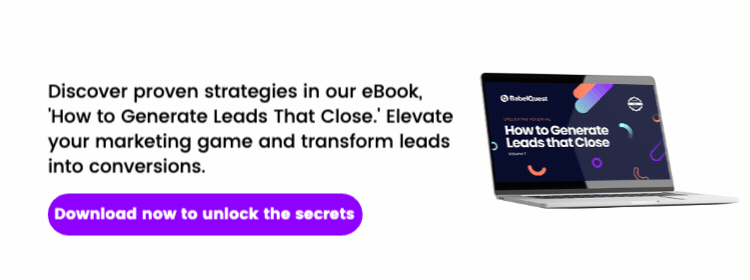Curiosity is part of being human. It’s probably the reason you clicked on this post, but far too often curiosity is left at the office door. Why? Possibly fear of the unknown or maybe just the pull of habit. Whatever the reason, it's vital that you make it a part of your working life.
This is especially true of those in a marketing profession. Our job as marketers is to put ourselves in the shoes of our customer personas and dig deep into what makes them behave as they do. Many marketers still do this via guesswork or by trial and error, but to really understand your customers (and to do so successfully, on budget), you must practise a combination of research rigour and curiosity.
(No cats were harmed in the making of this post.)

Are you asking the right questions?
To provide better solutions and win over the hearts and minds of your prospects you must ask better questions. Getting into the nitty-gritty will allow you to differentiate your offerings from competitors in ways that really matter to your consumers. It's necessary at this point to make the distinction between asking the necessary questions and being truly curious.
Being truly curious means going one step further. It may require more time and resources to dig into your target buyers and what makes them tick, but asking better questions is the key to unlocking the true potential of the inbound methodology.
Getting curious with the inbound methodology
The inbound methodology is by now a well known staple of inbound marketing strategies and is a prime example of how important it is to be curious. The need to be curious is prevalent at all stages of the methodology.
Attract. At this stage the aim is to pull in customers who are a good fit for your business. In order to do this, you must first have asked what sort of issues a prospect will be facing and what they may be searching for when trying to solve them. To really reach the perfect prospect, you need to know exactly what they're searching for. This is where well researched long tail keywords come in and where curious marketers shine.
Engage You need to know how your ideal prospect is likely to engage with your content, and what will persuade them to click through. Curious sales people sit on the lead’s side of the table, asking questions and delving deep into their problem. We call this inbound sales. As sales transitions into a more inbound role, reps need to demonstrate curiosity. Gone are the days of scripts and standard pitches.
Delight. What can you do after a sale? What issues does your new customer have, what do they need explaining, is the onboarding process clear enough, can you help them with anything else? Beyond simply making the sale, delighting your customer is essential to increasing customer satisfaction and generating more business. A customer has so much potential value that sales and marketing need to keep asking questions beyond the point of sale.
(Find out much more in our article, What is Inbound Marketing?)
The relationship between curiosity and data
Curiosity and data go together like peas in a pod (or marketers and colouring in). Asking the right questions is great but to glean any real value your answer must be backed up with evidence.
This usually means finding real data that's representative of your specific personas. HubSpot is great for this. Analysing your buyer’s journey via interactions with your business is an integral part of the software but this can also be done in a whole host of other ways.
Qualitative data. Ask your clients or customers what has worked best for them. Qualitative data is great for marketers as it allows you to find out what a person really feels as they interact with your business and how they perceive your unique value proposition in ways that quantitative data struggles to do. Great marketers will be asking why the good stuff works but more importantly why the bad stuff doesn’t.
A failed project can still be extremely useful to a curious marketer who is keen to find out what stopped working where and how they might make improvements next time around.
Quantitative data. Why not try to put together a survey to include in your next newsletter or ask a question of your customer after a purchase. This allows you to understand how your customer base is feeling as a whole. Getting the big picture allows you to monitor overarching trends.
Curiosity in your day-to-day
Knowing that curiosity is important is all well and good but how does it look in practice?
Here are three simple tips to that you can incorporate into your day-to-day to start seeing immediate benefits:
1. Next time something goes wrong or performs poorly, don’t immediately call it a failure and move on. Take the time to assess the problem area and work out why you didn’t get the results you expected. There could be a simple change you can make that would turn a failing project on its head.
2. Ask for a second opinion. Having confidence in your own ability is important but equally we can all learn something from others. Part of being naturally curious means constantly learning from your environment and peers.
3. Don’t assume anything about your prospects or customers. You may have an idea of who you expect to be buying that is actually not quite right. Double check and wherever possible trust in your data.
Learn how to be a more curious person.
Using curiosity to drive marketing success
Curiosity means a lot to us. It's how we engage our prospects in the sales process. It's how we understand and are able to reach our clients' customers with their marketing assets so well. And it's how we hire for new team members as the business grows. As inquisitiveness, we celebrate curiosity as one of our five defining values, helping us to retain our unique culture year after year. We hope that in reading this far, you're inspired to become a little more curious in your day-to-day, too.
Curiosity isn't just a virtue. Discover how you can use it to transform your sales and marketing operations by downloading our free, 80-page inbound marketing ebook below.







.png?width=50)

.png?width=50)
.png?width=50)


































